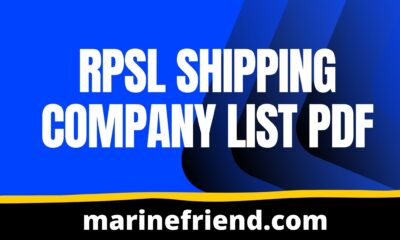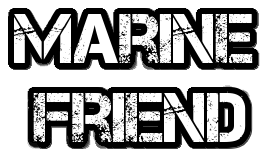OCTA
OCTCO Exit exam questions and answers 2

OCTCO Exit exam questions and answers 2
here are some multiple choice questions related to Basic Training for Oil and Chemical Tanker Cargo Operations for Exit exam (OCTCO):
- What is the primary purpose of Basic Training for Oil and Chemical Tanker Cargo Operations (OCTCO)?
a) To teach basic navigation skills
b) To provide knowledge and skills for handling oil and chemical tanker cargo
c) To learn firefighting techniques
d) To practice marine communication protocols
Answer: b) To provide knowledge and skills for handling oil and chemical tanker cargo What is the significance of maintaining the correct temperature of oil and chemical tanker cargo?
a) To prevent cargo contamination
b) To increase the tanker’s speed
c) To reduce fuel consumption
d) To enhance marine communication
Answer: a) To prevent cargo contaminationWhat is the purpose of the Emergency Shutdown (ESD) system on an oil and chemical tanker?
a) To prevent the spread of fire in case of an emergency
b) To stop the flow of cargo in case of an emergency
c) To ensure the safe navigation of the vessel
d) To manage crew safety during loading and unloading operations
Answer: b) To stop the flow of cargo in case of an emergencyWhat is the main function of an Inert Gas System (IGS) on an oil and chemical tanker?
a) To prevent the buildup of explosive gases in the cargo tanks
b) To remove unwanted debris from the cargo tanks
c) To generate electricity for the tanker’s operations
d) To provide fresh air for the crew
Answer: a) To prevent the buildup of explosive gases in the cargo tanksWhat is the most important safety requirement during oil and chemical tanker cargo operations?
a) Ensuring the proper ventilation of the cargo tanks
b) Regular maintenance of the tanker’s engines and machinery
c) Following proper safety procedures and guidelines
d) Ensuring adequate supply of drinking water for the crew
Answer: c) Following proper safety procedures and guidelinesWhat is the purpose of a Cargo Record Book (CRB) on an oil and chemical tanker?
a) To record all crew activities on board the vessel
b) To document the amount and type of cargo loaded and discharged
c) To maintain a log of communication with other vessels
d) To keep track of fuel and water consumption
Answer: b) To document the amount and type of cargo loaded and dischargedWhich organization sets the guidelines and regulations for Basic Training for Oil and Chemical Tanker Cargo Operations (OCTCO)?
a) International Maritime Organization (IMO)
b) International Chamber of Shipping (ICS)
c) International Association of Classification Societies (IACS)
d) International Transport Forum (ITF)
Answer: a) International Maritime Organization (IMO)What is the role of the Officer in Charge of the Navigational Watch (OICNW) during oil and chemical tanker cargo operations?
a) To manage the cargo loading and discharge operations
b) To navigate the vessel and ensure safe passage
c) To maintain the machinery and equipment
d) To monitor the weather conditions and adjust the tanker’s speed
Answer: b) To navigate the vessel and ensure safe passageWhat is the significance of the Stability Data Information Booklet (SDIB) on an oil and chemical tanker?
a) To provide information on the ship’s stability and loading conditions
b) To document the crew’s daily activities
c) To record the ship’s fuel and water consumption
d) To maintain a log of the vessel’s maintenance history
Answer: a) To provide information on the ship’s stability and loading conditionsWhat is the purpose of a Crude Oil Washing (COW) system on an oil tanker?
a) To clean the cargo tanks after discharge
b) To remove water from the cargo tanks
c) To generate inert gas for the cargo tanks
d) To wash the cargo tanks before loading
Answer: d) To wash the cargo tanks before loadingWhat is the significance of the International Safety Guide for Oil Tankers and Terminals (ISGOTT) in the context of oil and chemical tanker cargo operations?
a) To provide guidelines for safe navigation and cargo handling
b) To establish the legal requirements for operating an oil tanker
c) To outline the technical specifications for tanker construction
d) To provide recommendations for tanker design and engineering
Answer: a) To provide guidelines for safe navigation and cargo handlingWhat is the purpose of a Vapor Emission Control System (VECS) on an oil and chemical tanker?
a) To reduce air pollution caused by cargo vapor emissions
b) To monitor the cargo tanks’ temperature and pressure
c) To regulate the flow of cargo during loading and discharge operations
d) To control the vessel’s speed during cargo operations
Answer: a) To reduce air pollution caused by cargo vapor emissionsWhat is the primary function of a Stripping Pump on an oil and chemical tanker?
a) To discharge cargo from the tanks
b) To remove excess water from the cargo tanks
c) To pump inert gas into the cargo tanks
d) To supply fuel to the vessel’s engines
Answer: b) To remove excess water from the cargo tanksWhat is the purpose of a Deck Seal on an oil and chemical tanker?
a) To provide a secure seal for the cargo tanks
b) To prevent seawater from entering the vessel
c) To regulate the flow of cargo during loading and discharge operations
d) To monitor the cargo tanks’ temperature and pressure
Answer: b) To prevent seawater from entering the vesselWhat is the significance of the International Maritime Dangerous Goods (IMDG) Code in the context of chemical tanker cargo operations?
a) To provide guidelines for the safe transportation of hazardous materials by sea
b) To regulate the navigation and operation of chemical tankers
c) To establish the legal requirements for operating a chemical tanker
d) To outline the technical specifications for tanker construction
Answer: a) To provide guidelines for the safe transportation of hazardous materials by seaWhat is the primary purpose of the Ship to Shore Safety Checklist?
A. To ensure that the ship is seaworthy
B. To prevent environmental pollution
C. To prevent fire and explosions
D. To ensure compliance with local regulations
Answer: CWhich of the following equipment is used to prevent the overpressure of cargo tanks?
A. Flame screens
B. Deck water seals
C. Safety valves
D. Inert gas systems
Answer: CWhat is the minimum number of portable gas detectors required on board a tanker?
A. One
B. Two
C. Three
D. Four
Answer: BWhat is the primary purpose of the Inert Gas System?
A. To ventilate cargo tanks
B. To pressurize cargo tanks
C. To reduce the oxygen content in cargo tanks
D. To increase the oxygen content in cargo tanks
Answer: C
OCTCO Exit exam sets: click here
- Which of the following statements is true regarding the Ship to Ship Transfer Operation?
A. It is allowed only in daylight hours
B. It is allowed only in good weather conditions
C. It is prohibited in designated areas
D. It is allowed only with the permission of the harbor master
Answer: C Which of the following documents is required for the transportation of hazardous cargoes?
A. International Oil Pollution Prevention Certificate
B. Certificate of Fitness
C. International Maritime Dangerous Goods Code
D. International Ship and Port Facility Security Code
Answer: CWhat is the purpose of the Ship to Ship Transfer Plan?
A. To ensure compliance with local regulations
B. To prevent environmental pollution
C. To prevent fire and explosions
D. To ensure that the ship is seaworthy
Answer: BWhich of the following statements is true regarding the Inert Gas System?
A. It is used to increase the oxygen content in cargo tanks
B. It is used to pressurize cargo tanks
C. It is used to ventilate cargo tanks
D. It is used to reduce the oxygen content in cargo tanks
Answer: DWhich of the following is the correct procedure for opening a cargo tank?
A. Ventilate the tank, test for explosive gases, then open the hatch
B. Open the hatch, ventilate the tank, then test for explosive gases
C. Test for explosive gases, open the hatch, then ventilate the tank
D. Ventilate the tank, open the hatch, then test for explosive gases
Answer: AWhat is the primary purpose of the Shipboard Oil Pollution Emergency Plan?
A. To prevent fire and explosions
B. To ensure compliance with local regulations
C. To prevent environmental pollution
D. To ensure that the ship is seaworthy
Answer: CWhich of the following is the correct procedure for securing a cargo tank after loading?
A. Close all valves, secure all hatches, and apply the correct tank pressure
B. Open all valves, secure all hatches, and vent the tank to the atmosphere
C. Close all valves, secure all hatches, and vent the tank to the atmosphere
D. Open all valves, secure all hatches, and apply the correct tank pressure
Answer: AWhat is the primary purpose of the Oil Record Book?
A. To record cargo operations
B. To record maintenance activities
C. To record navigational data
D. To record crew training
Answer: AWhich of the following cargoes is classified as a dangerous cargo?
A. Non-toxic chemicals
B. Edible oils
C. Lubricating oils
D. Petroleum products
Answer: DWhat is the minimum number of fire pumps required on board a tanker?
A. One
B. Two
C. Three
D. Four
Answer: BWhat is the primary purpose of the Emergency Shutdown System?
A. To prevent oil spills
B. To prevent cargo contamination
C. To prevent fires and explosions
D. To prevent cargo leaks
Answer: CWhich of the following statements is true regarding the Ballast Water Management Plan?
A. It is required only for new ships
B. It is required for all ships
C. It is required only for ships operating in designated areas
D. It is required only for ships carrying dangerous cargoes
Answer: BWhich of the following statements is true regarding the Dangerous Goods Declaration?
A. It is required for all cargoes
B. It is required only for dangerous cargoes
C. It is required only for bulk cargoes
D. It is required only for containerized cargoes
Answer: BWhat is the primary purpose of the Shipboard Marine Pollution Emergency Plan?
A. To prevent environmental pollution
B. To prevent cargo contamination
C. To prevent fires and explosions
D. To prevent oil spills
Answer: DWhich of the following statements is true regarding the Automatic Tank Gauging System?
A. It is used to measure cargo temperature
B. It is used to measure cargo quantity
C. It is used to measure cargo pressure
D. It is used to measure cargo viscosity
Answer: BWhich of the following is the correct procedure for cleaning cargo tanks?
A. Remove all residues, wash the tank with seawater, and discharge the wash water overboard
B. Wash the tank with fresh water, remove all residues, and discharge the wash water overboard
C. Remove all residues, wash the tank with fresh water, and discharge the wash water to a shore reception facility
D. Wash the tank with seawater, remove all residues, and discharge the wash water to a shore reception facility
Answer: C
Also read: OCTCO Exit exam questions and answers 1
OCTCO Exit exam questions and answers 3
these OCTCO Exit exam questions are based from the e-learning dg site.

 RPSL2 years ago
RPSL2 years agoBlacklisted RPSL companies 2021/2022/PART-2

 SEAFARERS2 years ago
SEAFARERS2 years agoBsid dg shipping email id and contacts

 RPSL2 years ago
RPSL2 years agodg shipping approved company

 RPSL2 years ago
RPSL2 years agoBlacklisted RPSL companies 2021/2022/PART-1

 RPSL2 years ago
RPSL2 years agorpsl shipping company list in Belapur

 DG SHIPPING2 years ago
DG SHIPPING2 years agodg shipping approved doctors list 2021-2022

 RPSL2 years ago
RPSL2 years agorpsl shipping company list pdf

 RPSL2 years ago
RPSL2 years agoBlacklisted RPSL companies 2021/2022/PART-3




